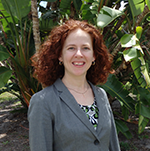
Number 123 May/June 2018
ISSN 1944-7639 (online version)
Contents
CLIR Names 2018 Postdoctoral Fellows
Sustaining Public Media Archives: A Way Forward
Register Now for 2018 DLF Forum and Affiliated Events
Forthcoming in July: The Future of Email Archives
Thank You, Sponsors and Members!
Staff Promotions
Reminder: Recordings at Risk Application Deadline June 29
CLIR Issues is produced in electronic format only. To receive the newsletter, please sign up at https://www.clir.org/pubs/issues/signup. Content is not copyrighted and can be freely distributed.
Follow us on Twitter @CLIRNews, @CLIRHC, @CLIRDLF
Like us on Facebook @CLIRNews
CLIR Names 2018 Postdoctoral Fellows
CLIR welcomes 21 postdoctoral fellows as we enter the fifteenth year of the Postdoctoral Fellowship Program. Fellows will work on sustainable approaches to software and research data curation in the sciences and social sciences supported by the Alfred P. Sloan Foundation; data curation for Latin American and Caribbean Studies funded by The Andrew W. Mellon Foundation; and in digital humanities, digital scholarship, and geospatial data curation supported by individual host institutions.
For the first time, the program is supporting four CLIR/Digital Library Federation (DLF) Postdoctoral Fellows in Data Curation for Energy Economics, with a grant from Sloan’s Energy and Environment Program. Energy fellows have joint appointments between energy research centers and libraries at four major research universities.
Fellowships are awarded to scholars who received a PhD degree within the last five years in the humanities, social sciences, or sciences. The program cultivates new leaders by giving highly skilled and articulate scholars broad exposure to issues facing academic libraries and cultural heritage institutions, practical opportunities to learn, and connections within the profession and beyond. Twelve fellows from the 2017 cohort will spend a second year at their host institutions.
The new fellows will begin their program at an intensive seminar at Bryn Mawr College from July 29 to August 4, 2018. The seminar introduces fellows to issues facing twenty-first-century libraries, including data and software curation, and provides an opportunity for them to meet others in their cohort to share experiences and information. Fellows’ supervisors also attend the seminar for a day to discuss expectations and strategies for maximizing the effectiveness of the fellowships.
Fellowship information is available at https://www.clir.org/fellowships/postdoc.
Emily Beagle
PhD: Mechanical Engineering, University of Wyoming
Host: University of Texas at Austin
Diana Carolina Sierra Becerra
PhD: History and Women’s Studies, University of Michigan
Host: Smith College
Alexander Brey
PhD: History of Art, Bryn Mawr
Host: McGill University
Heidi Dodson
PhD: History, University of Illinois at Urbana-Champaign
Host: University at Buffalo
Seth Erickson
PhD: Information Studies, University of California, Los Angeles
Host: Pennsylvania State University
Jennifer Garcon
PhD: History, University of Miami
Host: University of Pennsylvania
Zenobie S. Garrett
PhD: Anthropology, New York University
Host: University of Oklahoma
Daniel Genkins
PhD: History, Vanderbilt University
Host: Brown University
Jennifer Isasi
PhD: Hispanic Studies, University of Nebraska-Lincoln
Host: University of Texas at Austin
Andrew Meade McGee
PhD: History, University of Virginia
Host: Carnegie Mellon University
Nicté Fuller Medina
PhD: Linguistics, University of Ottawa
Host: University of California, Los Angeles
Margie Montañez
PhD: American Studies, University of New Mexico
Host: University of New Mexico
Smiti Nathan
PhD: Anthropology with focus on Archaeology, New York University
Host: Johns Hopkins University
Hyeongyul Roh
PhD: Economics, North Carolina State University
Host: Duke University
Jonathan Scott
PhD: Economics, Texas A&M University
Host: University of California, Berkeley
Justin D. Shanks
PhD: Science and Technology Studies, Virginia Tech
Host: Montana State University
Hadassah St. Hubert
PhD: History, University of Miami
Host: Florida International University
Rachel Starry
PhD: Classical and Near Eastern Archaeology, Bryn Mawr College
Host: University at Buffalo
Ana Trisovic
PhD: Computer Science, University of Cambridge
Host: University of Chicago
Wendy Hoi Yan Wong
PhD: Music, Chinese University of Hong Kong
Host: Chinese University of Hong Kong
Qian Zhang
PhD: Physical Oceanography with minor in Electronic and Computer Engineering, Louisiana State University
Host: University of Waterloo
Sustaining Public Media Archives: A Way Forward
CLIR and WGBH this week released a summary of discussions focused on the risks facing publicly supported radio and television broadcasts, and what is needed to sustain public media archives. The discussions, held in November 2017, involved experts and stakeholders who met to articulate the arguments for archiving and preserving the public media legacy, assess the challenges, and explore ways to address those challenges.
The deterioration of media carriers and the increasing obsolescence of older recording technologies pose an imminent threat to the survival of much of the public’s investments in news, culture, science, and educational programming. National coordination is needed to overcome three “grand challenges” to preserving and sustaining access to public media: reformatting legacy content, implementing long-term preservation strategies for both legacy and born-digital content, and surmounting barriers to access.
“Despite these daunting challenges, now is an ideal time to act to preserve and sustain a public media archive,” notes the summary, which identifies a series of opportunities associated with sustaining such an archive.
The summary offers recommendations for action that include engaging communicators to help raise awareness of the problem, identifying at-risk content and a set of tiered options for preserving it, identifying ways to reduce barriers to access so material can be made available to the public sooner, and building new partnerships focused on the grand challenges facing public media archiving.
Sustaining Public Media Archives: Summary of Sustainability Discussion Hosted by CLIR and WGBH, is available at https://www.clir.org/wp-content/uploads/sites/6/2016/09/Sustaining-Public-Media-Archives.pdf.
Register Now for 2018 DLF Forum and Affiliated Events
Registration is now open for the 2018 DLF Forum and Digital Preservation 2018, taking place October 15-18 just outside of Las Vegas. Register today and benefit from early bird rates! Stay tuned for the Forum schedule, which will be posted in mid-July and accessible via https://forum2018.diglib.org/schedule/.
Forthcoming in July: The Future of Email Archives
The Future of Email Archives, written by the Task Force on Technical Approaches to Email Archives and forthcoming from CLIR in July, articulates a conceptual and technical framework in which current efforts to preserve email can operate not as competing solutions, but as elements of an interoperable toolkit. The report identifies missing elements and areas for additional community growth.
Thank You, Sponsors and Members!
As CLIR’s sponsorship year draws to a close, we thank our sponsors and members for their continued support and acknowledge the following new sponsors and members who joined in 2017-2018:
Colorado State University (DLF member)
Concordia University (DLF member)
George Mason University (CLIR sponsor)
Georgia Public Library Service (DLF member)
ITHAKA (DLF member)
Lyon College (CLIR sponsor and DLF member)
Michigan State University (DLF member)
Oklahoma State University (CLIR sponsor)
Qatar National Library (CLIR sponsor and DLF member)
Rockefeller Archive Center (DLF member)
San Diego State University (CLIR sponsor)
Texas Christian University (CLIR sponsor)
The College of Wooster Libraries (DLF member)
Trinity University (DLF member)
University at Buffalo (SUNY) (CLIR sponsor and DLF member)
University of Connecticut (DLF member)
University of Idaho (DLF member)
University of Nevada, Las Vegas (DLF member)
Through annual dues, CLIR sponsors help support research, publications and related resources, partnerships, and other activities that benefit libraries, cultural institutions, and communities of higher learning. DLF members contribute to community efforts through a variety of research and development, information sharing, and catalytic initiatives. Learn more about sponsorship and membership at https://www.clir.org/about/become-a-sponsor-or-member/.
Staff Promotions
We are pleased to announce the following staff promotions:
Joy Banks has been promoted to program officer. She is responsible for coordinating programmatic activities for CLIR’s Digitizing Hidden Special Collections and Archives and Recordings at Risk grant programs, with an emphasis on outreach, constituent engagement, and assessment.
Nicole Ferraiolo has been promoted to senior program officer. She will lead CLIR’s grants team and oversee administration of the Digitizing Hidden Special Collections and Archives and Recordings at Risk regranting programs, as well as the Mellon Fellowships for Dissertation Research in Original Sources.
Amy Lucko has been promoted to deputy to the president. In this new role, she will foster communication among senior leadership and program staff, assist the president in identifying new trends in higher education and opportunities for CLIR’s investment, and maintain the organizational archive. She will continue to work on several of CLIR’s major programs, including the Leading Change Institute, the Digitizing Hidden Collections and Recordings at Risk grant programs, and the CLIR Mellon Fellowships for Dissertation Research in Original Sources.
Reminder: Recordings at Risk Application Deadline June 29
There is still time to submit an application to CLIR’s Recordings at Risk grant program. Administered with generous funding from The Andrew W. Mellon Foundation, Recordings at Risk supports the preservation of rare and unique audio and audiovisual content of high scholarly value through digital reformatting. Applications are due by midnight ET on June 29; recipients will be announced September 28, 2018.
The next application cycle will open December 3, 2018.




